Personality plays a vital role in shaping who we are, how we behave, and how we interact with others. From influencing career choices to determining social compatibility, personality affects nearly every aspect of life. In professional contexts, organizations increasingly rely on personality assessments to evaluate job candidates and employees. Tools like the Harrison exam are designed to measure personality traits and behavioral tendencies to determine job fit and workplace success.

What is Personality?
Personality refers to the unique and relatively stable patterns of thinking, feeling, and behaving that distinguish one individual from another. It encompasses not only traits and characteristics but also how people respond to situations and interact with their environment.
Psychologists generally agree that personality emerges from a combination of genetic factors, life experiences, and cultural influences. It is neither entirely fixed nor completely malleable; rather, personality evolves across time while maintaining certain core elements of consistency.
Theories of Personality
Over the years, psychologists and researchers have developed numerous theories to explain personality. Some of the most influential include hiring a psychology tutor.
- The Trait Theory
This approach views personality as a collection of measurable characteristics or traits. The Big Five Model—Openness, Conscientiousness, Extraversion, Agreeableness, and Neuroticism—is the most widely accepted trait theory today.
- Psychoanalytic Theory
Proposed by Sigmund Freud, this theory suggests that unconscious desires, childhood experiences, and inner conflicts shape personality. While some elements are controversial, Freud’s ideas laid the foundation for modern personality psychology.
- Humanistic Theory
Pioneered by Carl Rogers and Abraham Maslow, the humanistic approach emphasizes self-actualization and personal growth. It views personality as a result of striving to achieve one’s full potential. Get a Humanities Tutor.
- Social-Cognitive Theory
This theory highlights the role of environment, learning, and cognitive processes in shaping personality. According to Albert Bandura, personality is influenced by reciprocal interactions between people, behaviors, and surroundings.
- Biological Theory
Biological perspectives examine how genetics, brain structures, and chemical processes contribute to personality development. Twin studies, for example, have shown strong evidence of genetic influence on traits like extraversion and neuroticism.
With so many different approaches to understanding human behavior, it can be helpful to visualize the core focus of each theory.
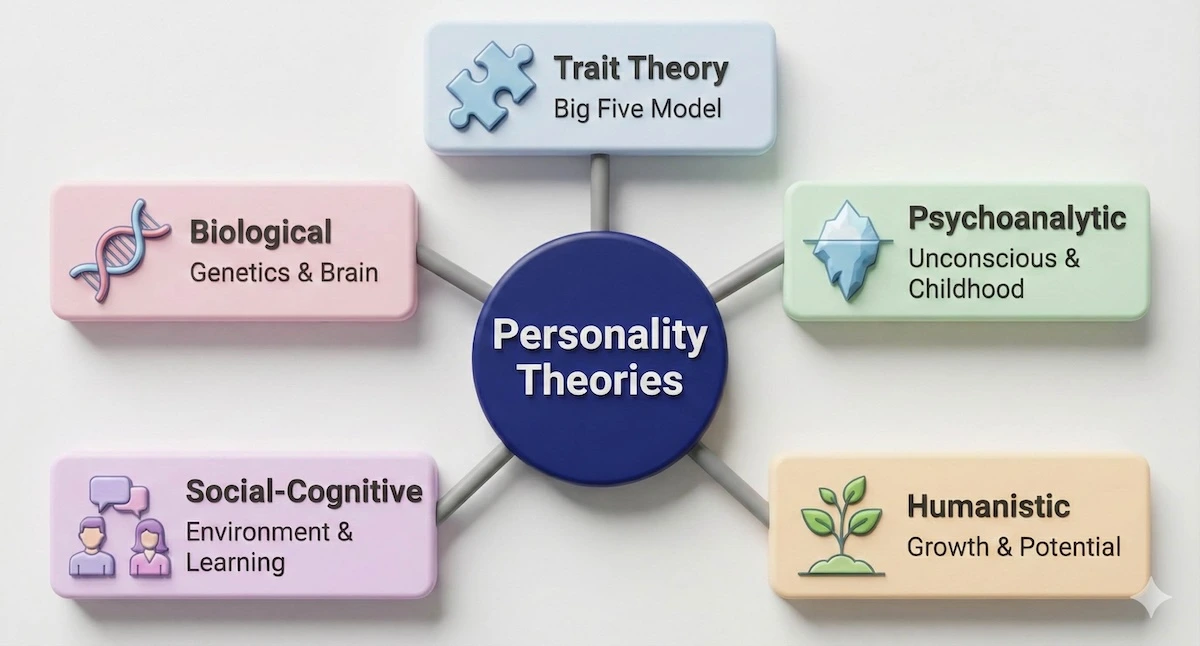
This visual breakdown helps you distinguish between the five major psychological theories that define modern personality analysis.
While each theory offers a unique perspective, modern assessments often blend these insights to create a comprehensive profile.
Factors Influencing Personality
Several factors contribute to the development and expression of personality:
- Genetics: Inherited traits play a substantial role in determining personality characteristics.
- Environment: Family upbringing, culture, and socialization all influence how personality develops.
- Life Experiences: Trauma, education, and major life events shape personality over time.
- Cognitive Factors: Thought patterns and self-perception affect how individuals express personality traits.
- Cultural Influences: Cultural norms shape what behaviors are considered acceptable or desirable.
These factors don’t work in isolation; they interact continuously to shape who we are.
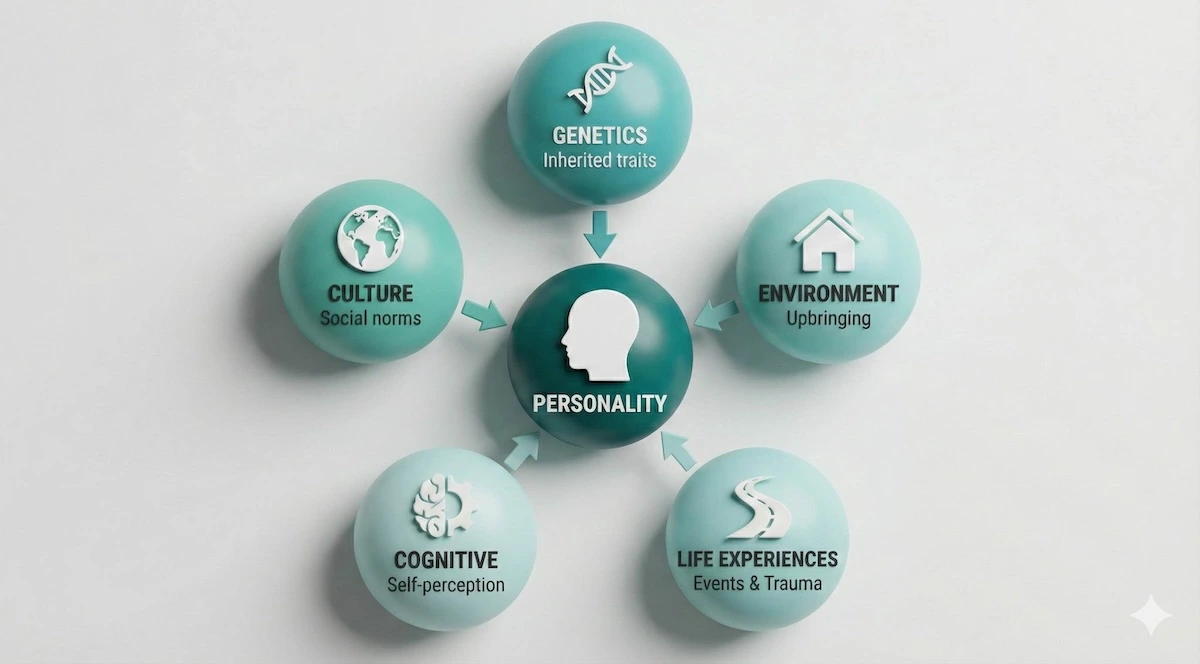
Personality isn’t fixed; it is shaped by this dynamic combination of genetics, environment, and personal experiences.
Understanding this mix of nature and nurture is key to interpreting assessment results accurately.
The Harrison Exam and Workplace Applications
The Harisson exam is a personality and behavioral assessment designed to predict job performance, workplace compatibility, and career satisfaction. Unlike traditional assessments that only measure traits, the Harrison exam emphasizes the relationship between personality and job requirements.
Key features of the Harrison exam include:
- Job Fit Analysis: Evaluates how well an individual’s traits align with a specific role.
- Behavioral Insights: Identifies strengths and potential challenges in workplace behavior.
- Career Development: Helps individuals recognize suitable career paths.
- Employee Retention: Aids organizations in hiring candidates more likely to thrive and stay in the role.
By focusing on the intersection of personality and job performance, the Harrison exam provides employers with valuable data to make informed hiring and management decisions.
To see exactly how the Harrison Exam differs from standard personality tests you might have taken, check out this comparison.
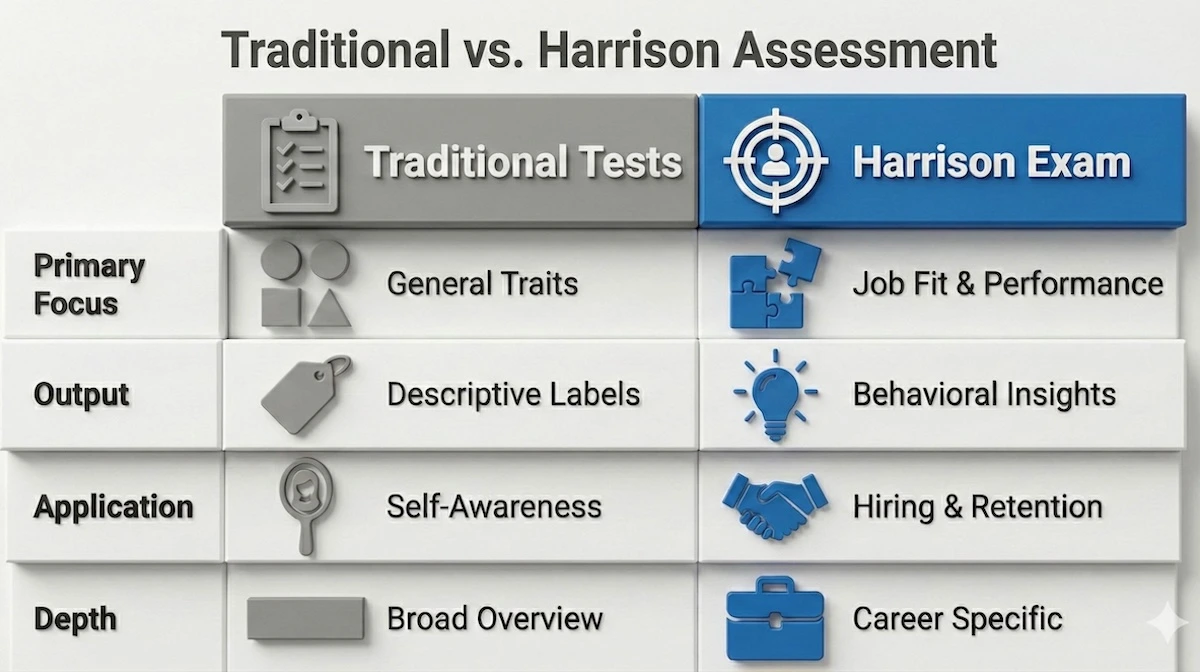
Unlike generic personality tests, the Harrison Assessment specifically targets job fit and predictive performance metrics.
This focus on ‘Job Fit’ is what makes the Harrison tool particularly valuable for engineering and technical roles.
Personality in Everyday Life
Personality influences countless aspects of daily living. Some examples include:
- Relationships: Traits like agreeableness and openness affect how individuals communicate and bond with others.
- Workplace Behavior: Conscientiousness predicts reliability, while extraversion often correlates with leadership tendencies.
- Decision-Making: Personality impacts risk-taking, problem-solving, and judgment.
Health and Well-being: Research shows that optimism and resilience contribute to better mental and physical health.
Personality and Career Success
Understanding personality can be a game-changer for career development. Here’s how:
- Career Choice: Individuals often excel in roles that align with their natural strengths and preferences.
- Job Performance: Traits such as conscientiousness and emotional stability are linked to higher workplace success.
- Leadership Potential: Self-confidence and interpersonal skills often predict leadership effectiveness.
- Workplace Harmony: Employees with compatible personalities tend to collaborate better and experience less conflict.
Employers benefit from assessing personality when making hiring decisions, while individuals gain insight into roles where they are most likely to thrive.
How exactly do these internal traits translate into external career success? Let’s trace the path.
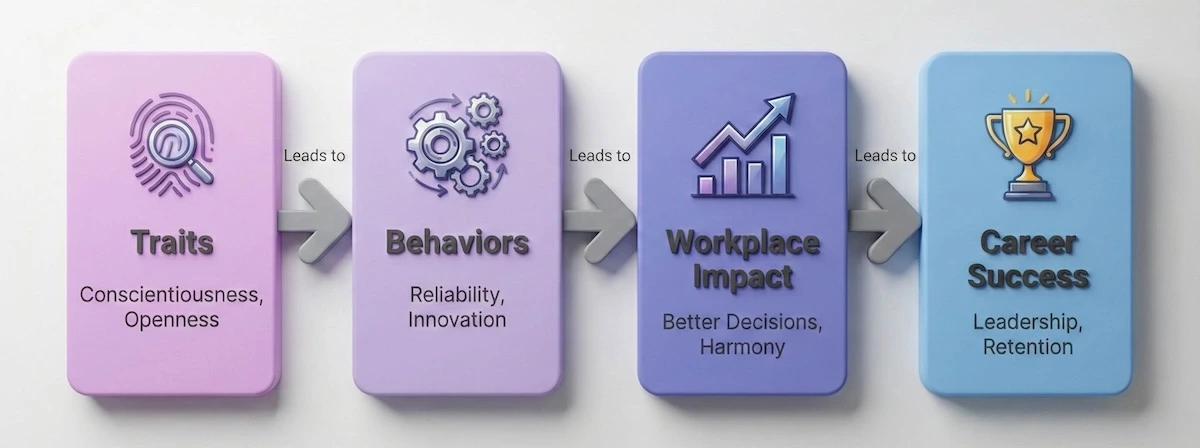
Visualizing the direct path from your natural personality traits to tangible professional achievements.
By identifying these traits early, you can proactively develop the behaviors that lead to leadership and stability.
The Future of Personality Assessment
As technology evolves, personality testing is becoming more sophisticated and accessible. Key trends include:
- AI Integration: Artificial intelligence is being used to analyze personality traits through online assessments and even video interviews.
- Data-Driven Hiring: Companies increasingly rely on personality assessments like the Harrison exam to reduce turnover and improve productivity.
- Global Reach: Online platforms make assessments accessible to candidates worldwide.
- Personal Development Focus: Beyond hiring, individuals use personality assessments for self-growth, coaching, and building stronger relationships.
As we look ahead, here are the four key technologies transforming how we analyze personality.
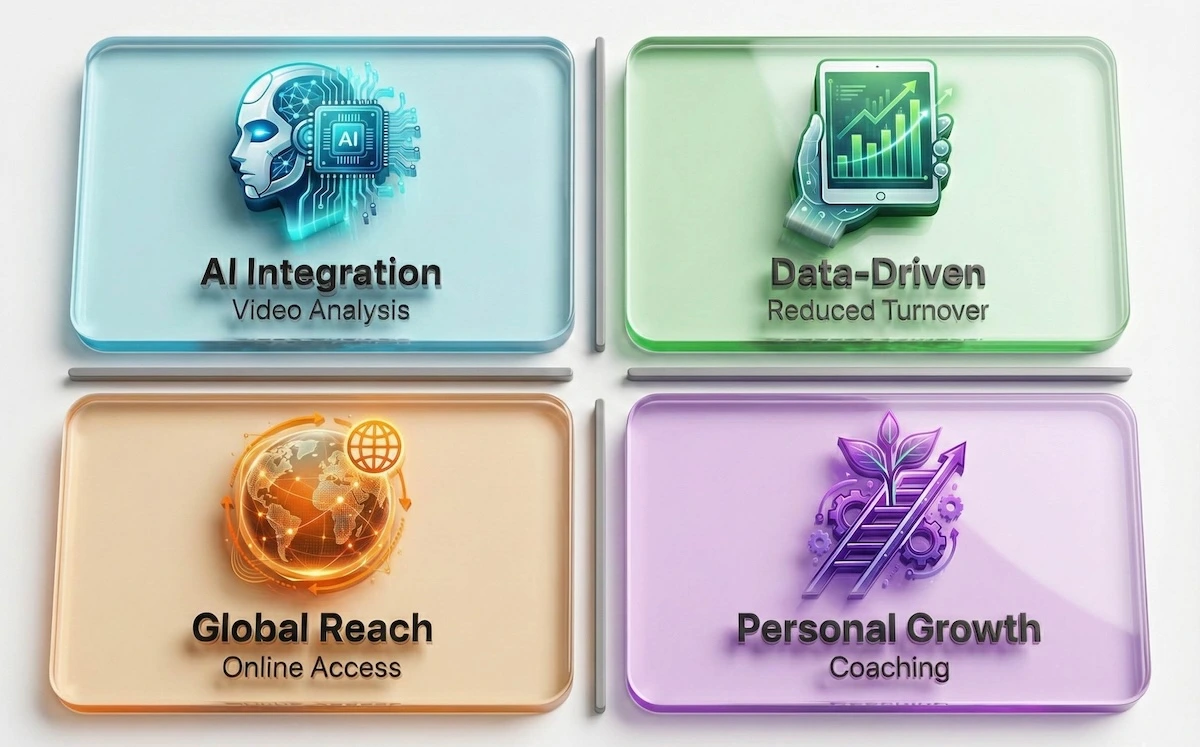
The future of assessment combines AI technology and global data to drive both hiring accuracy and personal growth.
Staying aware of these trends will help you prepare for the next generation of recruitment processes.
Conclusion
Personality is a complex and multifaceted aspect of human psychology that influences nearly every dimension of life—from relationships and career success to health and personal fulfillment. Tools like the Harisson exam highlight the importance of understanding personality, especially in professional settings where job fit and workplace harmony are critical.
******************************
This article provides general educational guidance only. It is NOT official exam policy, professional academic advice, or guaranteed results. Always verify information with your school, official exam boards (College Board, Cambridge, IB), or qualified professionals before making decisions. Read Full Policies & Disclaimer , Contact Us To Report An Error

